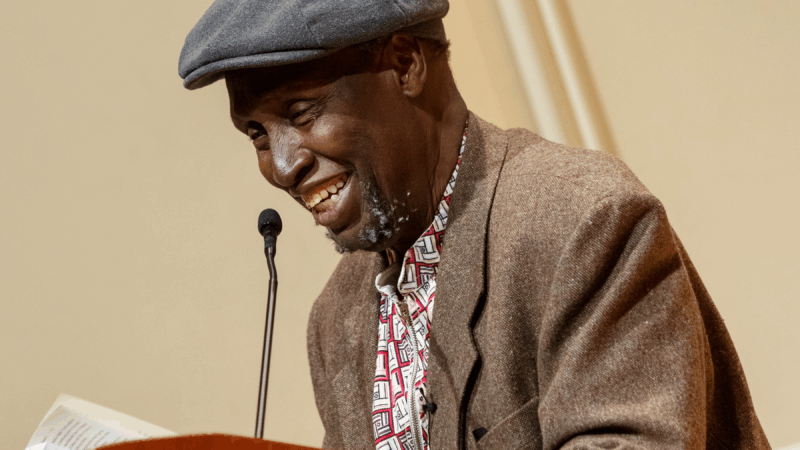Ngũgĩ wa Thiong’o, Kenyan literary giant who fought colonialism, dies at 87
Ngũgĩ wa Thiong’o, the Kenyan writer and novelist who critiqued colonial rule as well as the post-colonial Kenyan government, died Wednesday in a hospital in Buford, Georgia. He was 87 years old.
His daughter, Wanjiku Wa Ngugi, first announced the news in a Facebook post.
Ngũgĩ’s writing career began in 1964, with the novel Weep Not, Child. It was about a family living in colonial Kenya during the Mau Mau rebellion, which fought back against British rule. The book became an important part of the African literary canon.
He was a strong advocate for writing in local African languages. His 1980 novel, Devil on the Cross, was published in the Gikuyu language. “One of the greatest tragedies of Africa is a complete disconnection of the elite from their linguistic base,” Ngũgĩ told NPR in 2013.
“If Africa is going to contribute something original to the world, this must be rooted not only in the experience but also in the possibilities inherent in their own languages,” he said. “We have been brought up to think of our many languages as something which is bad. And it’s the other way around. Monolingualism suffocates. It is a bad thing. Language contact is the oxygen of civilization.”
Ngũgĩ wrote Devil on the Cross while he was in prison. In 1977, he co-wrote a play in Gikuyu and produced it in a local theater in Kenya. And while he’d previously written work critical of the Kenyan government in English, it was this play that got him sent to a maximum security prison, though he was never charged.
Born in 1938 in Kenya when it was a British colony, he originally went by James Ngugi. He went to Alliance High School, an elite boarding school, where he got to wear uniforms and play chess and read Shakespeare while his family was dealing with living under colonial rule. He wrote about this tension in his memoir In the House of the Interpreter. In the 2013 NPR interview, he said this experience informed his decision to write in Gikuyu – that he was sent to get an education in hopes of empowering his community.
“In reality, because of language, what happens is that the messenger who is sent by the community to go and fetch knowledge from wherever they can get it becomes a prisoner,” Ngũgĩ said. He never returns, so to speak, metaphorically because he stays within the language of his captivity.”
Ngũgĩ eventually became a professor of comparative literature at the University of California, Irvine, and was founding director of the school’s International Center for Writing and Translation. He was the recipient of many literary awards, and was also constantly name-checked in discussions for a potential Nobel win. But in 2020, he told NPR that he appreciated what he called the “Nobel of the heart,” which is when someone reads his work and tells him it impacted them.
“The beauty about the Nobel of the heart is it’s very democratic,” he said. “It’s available to every writer.”
Alabama GOP dismisses challenge to Tuberville candidacy
The Alabama Republican Party Candidate Committee dismissed the challenge filed by Ken McFeeters accusing Tuberville of not meeting the seven-year residency requirement to run for governor.
5 papers from the Super Bowl of Economics
Planet Money went to the annual meeting of the American Economics Association, and we saw some fascinating papers presented there.
I thought I’d heard my dad’s voice for the last time. A movie helped me find it again
A period drama, a Supreme Court case and voice our film critic hadn't heard in decades.
19 Winter Olympic storylines we’re watching (they’re not just about sports)
The Winter Olympics promise plenty of high adrenaline, fierce competition, historic firsts and emotional moments over 2 1/2 weeks. Here are some of the names and narratives to keep an eye on.
Privatizing Fannie Mae is risky. Would it be a win for taxpayers or Trump’s donors?
The idea has alarmed critics, who warn it could rattle financial markets and drive up mortgage rates, while potentially generating large profits for key Trump supporters.
Kilmar Abrego Garcia becomes symbol of mistaken deportations
Immigration lawyers said Kilmar Abrego Garcia's landmark case highlights the pitfalls with the speed and scale of the Trump administration's goal of mass deportations.






